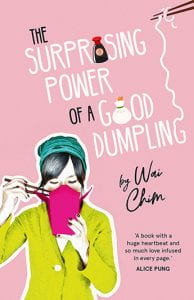 Ana lives in a detention centre in Darwin, having escaped her home in Iran, and initially being transported to Nauru. From Wickham Point Immigration Centre, she is able to attend school, but that is about all. No freedom. No hope. No life.
Ana lives in a detention centre in Darwin, having escaped her home in Iran, and initially being transported to Nauru. From Wickham Point Immigration Centre, she is able to attend school, but that is about all. No freedom. No hope. No life.
On her first school day, a new guard (Kenny) feels sorry for her and tells her to look out for his son (Jono) if she needs help. Kenny later regrets doing this, as other guards warn him the refugees will take advantage of anyone they can – in their eyes, the asylum seekers do not deserve any special treatment.
Jono is quite taken with Ana, and does befriend her, even after he finds out about her refugee status. Disinterested in school, but interested in Ana, he creates a lot of anxiety for his father. Kenny tells him to avoid Ana, even though the impact of her friendship is a mostly positive one, so the conflict (and distance) between father and son grows.
Set in an actual detention centre, Wickham Point (now closed), ‘Between Us’ addresses the difficulties and misunderstandings which exist around many asylum seekers. In his naivety, Jono occasionally upsets Ana with his insensitive comments and actions, but he does try. Ana is caught between two worlds, with some freedoms at school that she has not experienced for a while, though her family’s refugee status is never far from her mind.

Wickham Point Immigration Detention Centre
In ‘Between Us’, Clare Atkins does a wonderful job raising the issues which confront asylum seekers – their mistreatment, misunderstandings, cultural conflicts and lack of human rights. This is a sometimes gentle, but then confronting tale. (Ana’s home flashbacks are particularly gruesome.)
It contrasts the lives of Ana and Jono as they both deal with normal adolescent issues, which are also tinged with cultural and family expectations, and societal blindness to their personal problems. It doesn’t paint a pretty picture, but makes you think.
Raw but real. Insightful but challenging. Highly recommended read.
Also good for group/class discussion – don’t let that put you off!
Winner, CBCA’s 2019 Book of the Year for Older Readers.
CBCA’s 2019 Notable Book of the Year for Older Readers.
iBBY Australia’s 2020 Honour Book for Writing.
# Available as an ebook.
 It’s Easy Being Teen. Right? Not always…
It’s Easy Being Teen. Right? Not always… As the
As the 
 Imagine how you would feel if your parents picked you up from school, and whisked you away to a foreign country? No time to say goodbye to friends, unable to pack your favourite things – in fact, having many of your school possessions dumped in a bin, never to be seen again!
Imagine how you would feel if your parents picked you up from school, and whisked you away to a foreign country? No time to say goodbye to friends, unable to pack your favourite things – in fact, having many of your school possessions dumped in a bin, never to be seen again!


 My daughter commented the other day about how many new books she had read recently were now using flashbacks and multiple viewpoints*. This may have related to the genre she has been reading (several crime and mystery stories), but I certainly reflected on this comment as I read ‘the Van Apfel Girls are Gone’ – flashbacks are crucial.
My daughter commented the other day about how many new books she had read recently were now using flashbacks and multiple viewpoints*. This may have related to the genre she has been reading (several crime and mystery stories), but I certainly reflected on this comment as I read ‘the Van Apfel Girls are Gone’ – flashbacks are crucial. When I first began reading ‘the Surprising Power of a Good Dumpling’ it made me recall ‘Front Desk’ by Kelly Yang (
When I first began reading ‘the Surprising Power of a Good Dumpling’ it made me recall ‘Front Desk’ by Kelly Yang (
 Mia’s family has immigrated from China to the US for a better life – which is fine, until the reality of finding work hits. With little more than $200, the family takes on a job running a motel for Mr Yao, the wealthy owner. They soon realise life isn’t going to be as rosy as they first thought, as Mr Yao takes advantage of their desperate situation.
Mia’s family has immigrated from China to the US for a better life – which is fine, until the reality of finding work hits. With little more than $200, the family takes on a job running a motel for Mr Yao, the wealthy owner. They soon realise life isn’t going to be as rosy as they first thought, as Mr Yao takes advantage of their desperate situation. Wearing Paper Dresses is a story you can feel. In its pages, even a city-slicker can begin to understand the stresses and strains of rural life – and to anticipate the troubles to come.
Wearing Paper Dresses is a story you can feel. In its pages, even a city-slicker can begin to understand the stresses and strains of rural life – and to anticipate the troubles to come.